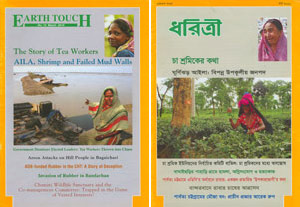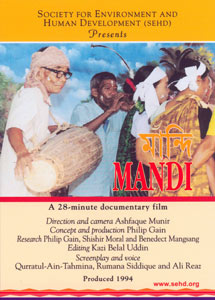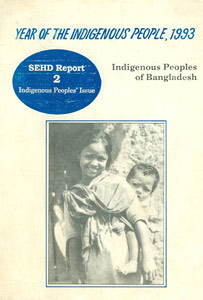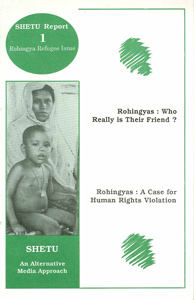
Earth Touch
An occasional magazine published by SEHD that contain investigative reports, analyses, interviews and photographs on issues and concerns of Bangladesh. From 1995, English and Bangla, Magazine.
Tk.25 / US$1 each. 6 Issues (1995-2018) Tk. 400/ USD 15 | Dharitri –14 Issues (1995-2014), Tk. 350/ USD 15
Earth Touch (English) and Dharitri (Bangla) are occasional magazines published by SEHD that contain investigative reports, analyses, interviews and photographs that help people understand some of the complex issues and concerns of Bangladesh. The content of both magazines is fairly similar but not always identical.
Magazine Details
Published: From 1995
Language: English (Earth Touch) and Bangla (Dharitri)
Magazine: Various lengths
Editor: Philip Gain
Price Per Issue: Tk.25 / US$1
———–
Earth Touch-16 Issues (1995-2018)
Tk. 400/ USD 15
Dharitri –14 Issues (1995-2014)
Tk. 350/ USD 15



